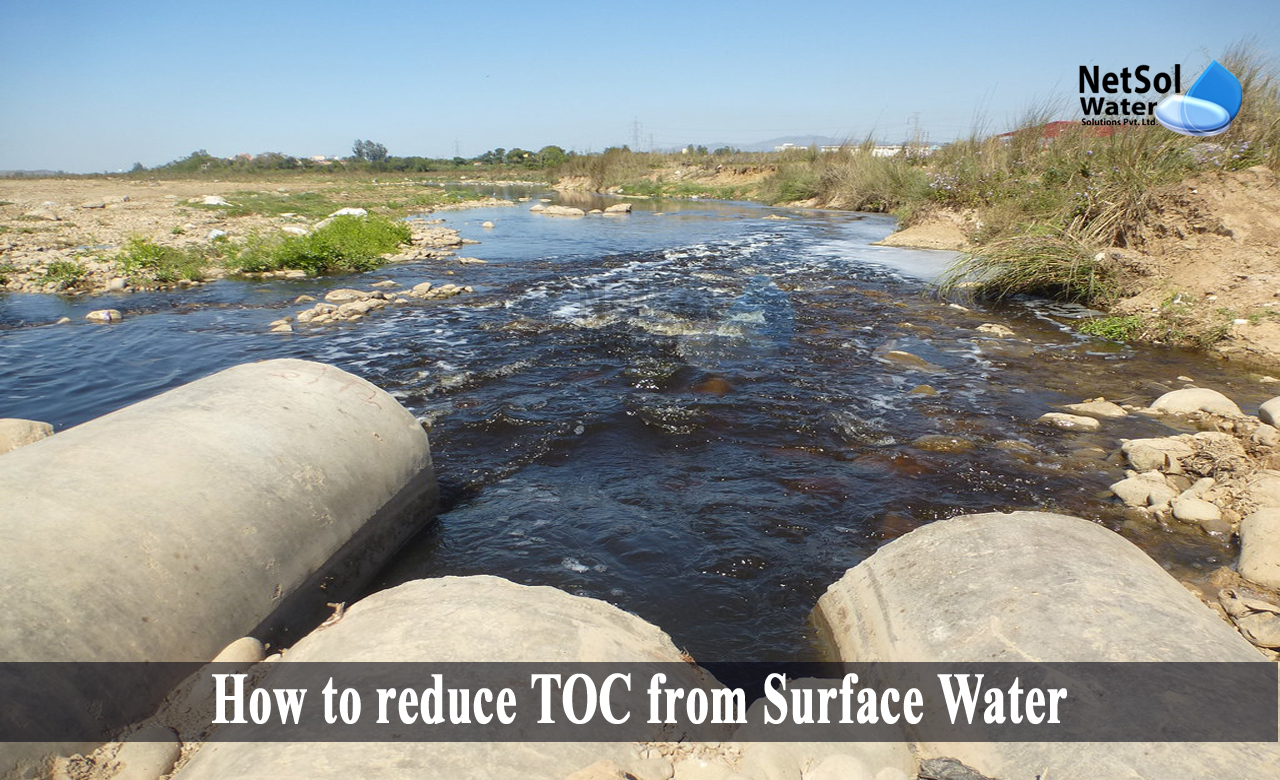Disinfectant application is a crucial stage in the treatment of surface water. However, the method may result in unfavourable disinfection by-products (DBPs).
Total organic carbon (TOC) is frequently increased to undesirable amounts, by the interaction of natural organic matter (NOM) and DBPs. Therefore, it is mandatory to remove TOCs from surface waters, to achieve good water quality.
Why does water have TOC?
The amount of pollutants or organic molecules present in water is determined, by the total organic carbon (TOC) measurement. Organizations can determine whether or not the water is suitable for their particular requirements, by measuring the TOC in the water.
Only the quantity of compounds will be determined by TOC, not the specific compounds that are present.
DBPs and TOC water treatment
TOC reduction is required to satisfy national or state standards. It is especially important to adopt TOC removal techniques since some DBPs, like haloacetic acids and trihalomethanes, can lead to cancer.
How to reduce TOC from Surface Water?
Total organic carbon (TOC) can be reduced using a number of techniques, including ultraviolet (UV) light, advanced oxidation, ion exchange, and membrane filtration.
· Reduction of TOC with UV (ultraviolet light)
Organic materials are oxidised into water and carbon dioxide when exposed to UV light, which encourages free radical production.
In water treatment processes, UV light with a wavelength of 254 nanometres (nm) is frequently utilized. The addition of per sulphate molecules can increase the oxidation process's potency.
· Advanced oxidation
Advanced oxidation necessitates hydroxyl radicals in proportion to the pollutants being eliminated, which might drive up the price of necessary chemical reagents. But, among all antioxidants, hydroxyl radicals are among the most potent. They are made by accurately injecting oxygen, ozone, or hydrogen peroxide into the water treatment process.
Instead of only moving specific chemical components to another phase, the procedure is able to eliminate them. Under ideal circumstances, the amount of contamination is lowered from hundreds of parts per billion, to fewer than five ppb.
· Membrane filtration
There are high-pressure and low-pressure membranes used in the water treatment process. Microfiltration (MF) and ultrafiltration (UF) are low-pressure systems, whereas reverse osmosis (RO) and nanofiltration (NF) are high-pressure systems. High-pressure membranes normally work between 75-250 psi, while low-pressure membranes typically operate between 10 and 30 psi.
· Ion exchange process
The resins' in ion-exchange possess huge pores that trap bulky organic compounds. The resin can be recycled year after year, after the organic constituents have been eliminated using a brine solution. The use of such resins in larger municipal water treatment facilities is economically feasible.
Choosing the best manufacturers of water treatment plants in India
Please allow us to demonstrate the techniques available with our Netsol Water water treatments, to lower the chemical concentrations in your TOC water testing samples.
Disinfection by-products can be dealt with in an effective and efficient way. Our cutting-edge testing tools precisely determine TOC levels, so the appropriate solutions are implemented.
Moreover, surface water can be returned to its original, unadulterated state with Netsol Water, making it safe for consumption and the environment. We are committed to providing high-performing treatment plants with minimal energy usage,and various recycling technologies, to assist enterprises with their treatment requirements.
Netsol Water is Greater Noida-based leading water & wastewater treatment plant manufacturer. We are industry's most demanding company based on client review and work quality. We are known as best commercial RO plant manufacturers, industrial RO plant manufacturer, sewage treatment plant manufacturer, Water Softener Plant Manufacturers and effluent treatment plant manufacturers. Apart from this 24x7 customer support is our USP. Call on +91-9650608473, or write us at enquiry@netsolwater.com for any support, inquiry or product-purchase related query.



